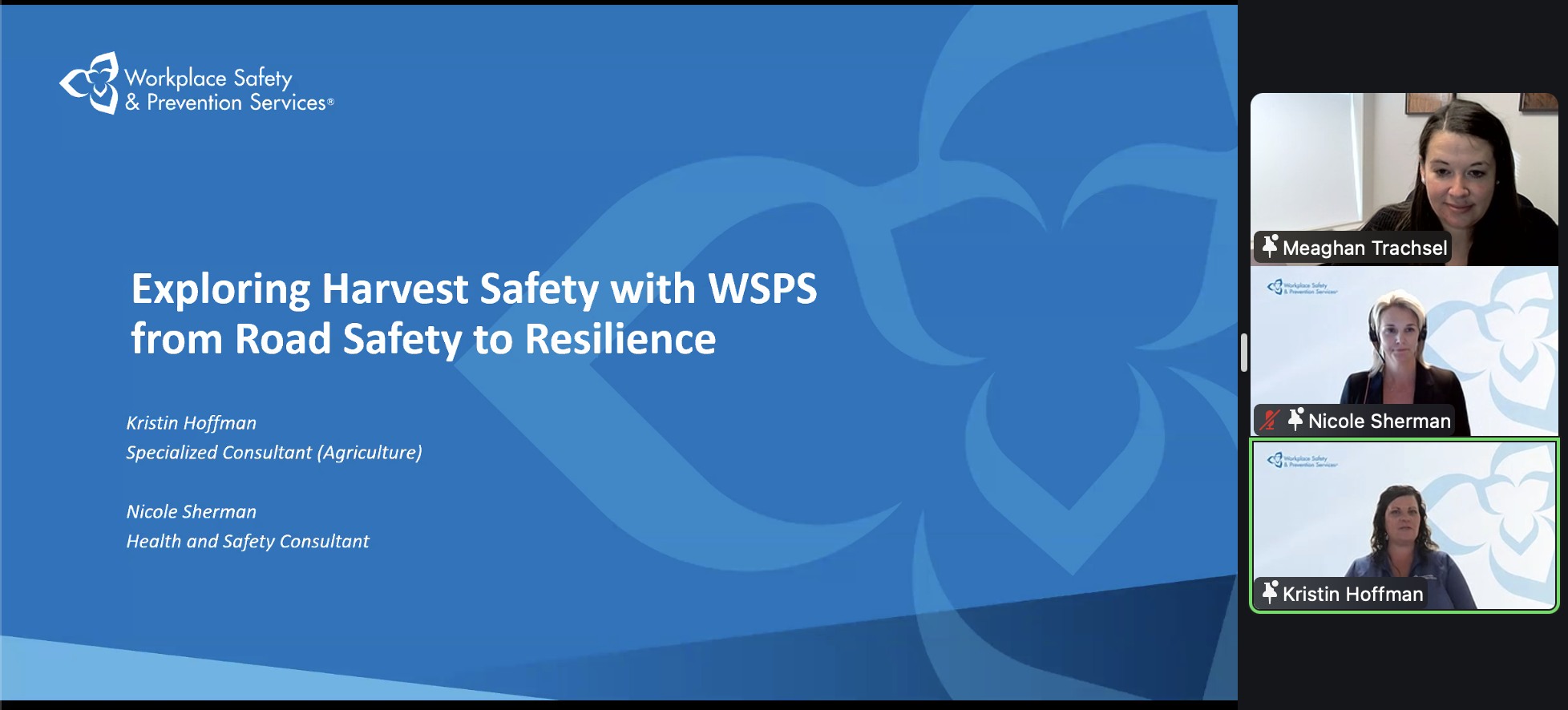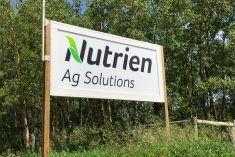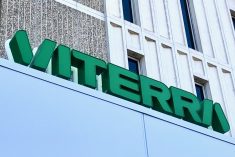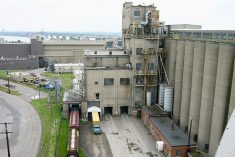Two major Canadian players in the global fertilizer industry now have what they say is the final blessing they need to close their merger deal Jan. 1, on two already-met conditions.
Saskatoon-based Potash Corporation of Saskatchewan and Calgary-based Agrium Inc. announced Wednesday they’ve received clearance from the U.S. Federal Trade Commission (FTC) to close their US$25 billion merger-of-equals transaction and form up under a new name, Nutrien.
With the deal’s closing date set for Jan. 1, common shares of Nutrien are expected to start trading Jan. 2 in both Toronto and New York under the ticker symbol “NTR” and PotashCorp and Agrium common shares will be delisted at market close that day, the companies said.
Read Also

Tips for staying safe this harvest season
Kristin Hoffman of WSPS explains measures for increased farm safety around harvest season
Agrium CEO Chuck Magro, who next month becomes Nutrien’s CEO, said Wednesday the two firms “expect to move quickly upon closing to begin delivering on the many strategic benefits and synergy potential of this combination.”
The companies have previously said they expect to see annual operation synergies of up to US$500 million from the deal, which will create Canada’s third-largest natural resource company with an enterprise value of about US$36 billion.
Nutrien expects to have a combined workforce of almost 20,000 employees in potash, nitrogen and phosphate production and in Agrium’s crop input retail division, Crop Production Services (CPS). The company said it will have corporate offices in both Calgary and Saskatoon, with Saskatoon serving as the registered head office.
Antitrust regulators in Canada, India and China had already signed off on the deal in September, October and November respectively. Canada’s Competition Bureau granted unconditional approval, while the clearances from China and India call for PotashCorp to shed minority stakes in fertilizer companies in Chile, Israel and Jordan.
The FTC on Wednesday, meanwhile, ruled that a PotashCorp/Agrium marriage would “likely harm competition” in the North American market superphosphoric acid (SPA), and in a specialized, more localized market for nitric acid.
Specifically, the FTC said, PotashCorp and Agrium are two of just three companies in North America making SPA, which is only “rarely” imported from overseas. Agricultural wholesalers and retailers use SPA to produce ammonium polyphosphate (APP) fertilizer.
Also, the agency said, PotashCorp and Agrium each have nitric acid manufacturing plants in Ohio and are the two primary suppliers of 65-67 per cent concentration nitric acid in Ohio, Kentucky, Pennsylvania, Maryland, West Virginia and New Jersey.
Nitric acid at that concentration is used in making fertilizers, explosives, stainless steel and certain specialty chemicals.
The FTC, in its release, cited a complaint that “for most customers, there are no functionally equivalent chemical substitutes for 65-67 per cent concentration nitric acid,” and that it’s “unlikely” a competing player would set up another plant in that region.
Thus, the agency said, PotashCorp and Agrium’s settlement agreement with the FTC requires them to sell Agrium’s SPA plant at Conda, Idaho, about 100 km east of Pocatello, to Itafos, a Cayman Islands-based phosphate fertilizer maker.
Also, the FTC said, the settlement agreement requires the sale of Agrium’s nitric acid plant at North Bend, Ohio, just west of Cincinnati, to New York-based fertilizer and commodity firm Trammo.
Neither of the FTC’s conditions will come as a shock to Agrium, which had already announced deals in early November to sell the SPA plant to Itafos for US$100 million and the nitric acid plant to Trammo for an undisclosed sum, with both sales “intended to address U.S. regulatory concerns.”
When PotashCorp and Agrium first announced their merger plans in mid-2016, major farm groups in both Canada and the U.S. said they would take up the issue with regulators in both countries, citing concerns about lost pricing power.
Canada’s Competition Bureau said in September it had consulted stakeholders in the lead-up to its decision, including the two companies’ customers, competitors, industry groups and government.
However, it ruled the deal “is not likely to lead to a substantial lessening of competition relating to potash in Canada,” and effective competitors were in place in the dry phosphate market.
The bureau also said it didn’t see significant overlap or rivalry between Agrium and PotashCorp in Canadian markets for SPA or nitric acid.
The Nutrien partners in 2016 said they also “remain committed to Canpotex,” the Saskatoon-based potash export logistics and marketing company they own jointly with U.S. fertilizer firm Mosaic Co. — AGCanada.com Network












